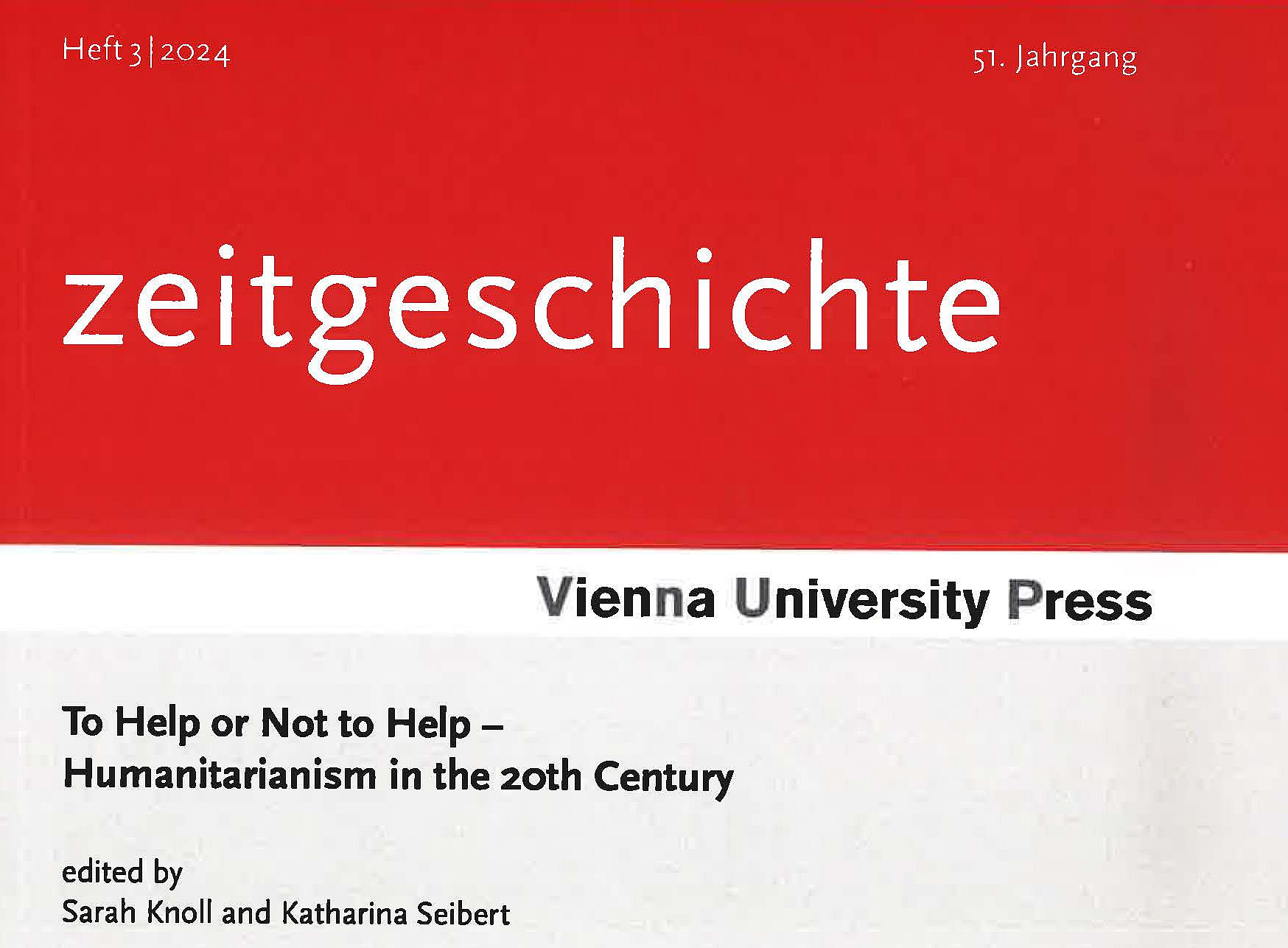Today, humanitarianism, as a moral imperative to help, is prevalent, especially in the so-called Western world. The public reacts to natural disasters, war, or medical emergencies with a desire to alleviate suffering. But in recent decades historians have begun to critically assess this moral perspective and examine humanitarian organizations, politics, and the motives of humanitarian actors. They highlight how helping people relieve their suffering is just one side to every humanitarian story. Humanitarian actors themselves have their own reasons for helping. Humanitarian aid evolves in a tense dialectic between people in need and the individual agendas of the ‘benevolent saviors.’ This special issue approaches humanitarianism and humanitarian aid from the perspective of such ‘benevolent saviors’ and their agendas and covers different moments in history and geographical regions in the 20th century. The papers analyze humanitarianism as a reconstruction mission according to civilizing desires, as an enabling factor for individual professionalization, as a power struggle, and as a tool for domestic and international policymaking.
Articles
Doina Anca Cretu, The American Red Cross and Visions of Rebuilding of the Balkans after the First World War
Katharina Seibert. Springboards for Women’s Careers. International Humanitarianism, the Spanish Civil War, and the Rise of Mercedes Milá Nolla
Julia Schulte-Werning, Milk for the Mellah. Infant Health and the Logistics of Post-Holocaust Humanitarian Aid for Jewish Communities in French Morocco
Sarah Knoll, Humanitarianism as a Policy Strategy? Revisiting Austria’s ‘Humanitarian Tradition’
Authors
Dr.in Doina Anca Cretu
Assistant Professor in Modern European History at University of Warwick, UK
Dr.in Katharina Seibert
Historian and PostDoc Researcher at the Department of Contemporary History, University of Tübingen
Julia Schulte-Werning, MA
PraeDoc Researcher at the Department of History and Fellow of the Doctoral School for Historical and Cultural Studies, University of Vienna
Dr.in Sarah Knoll, MA
Historian and PostDoc Researcher at the Department of History, Section Contemporary History, University of Graz
